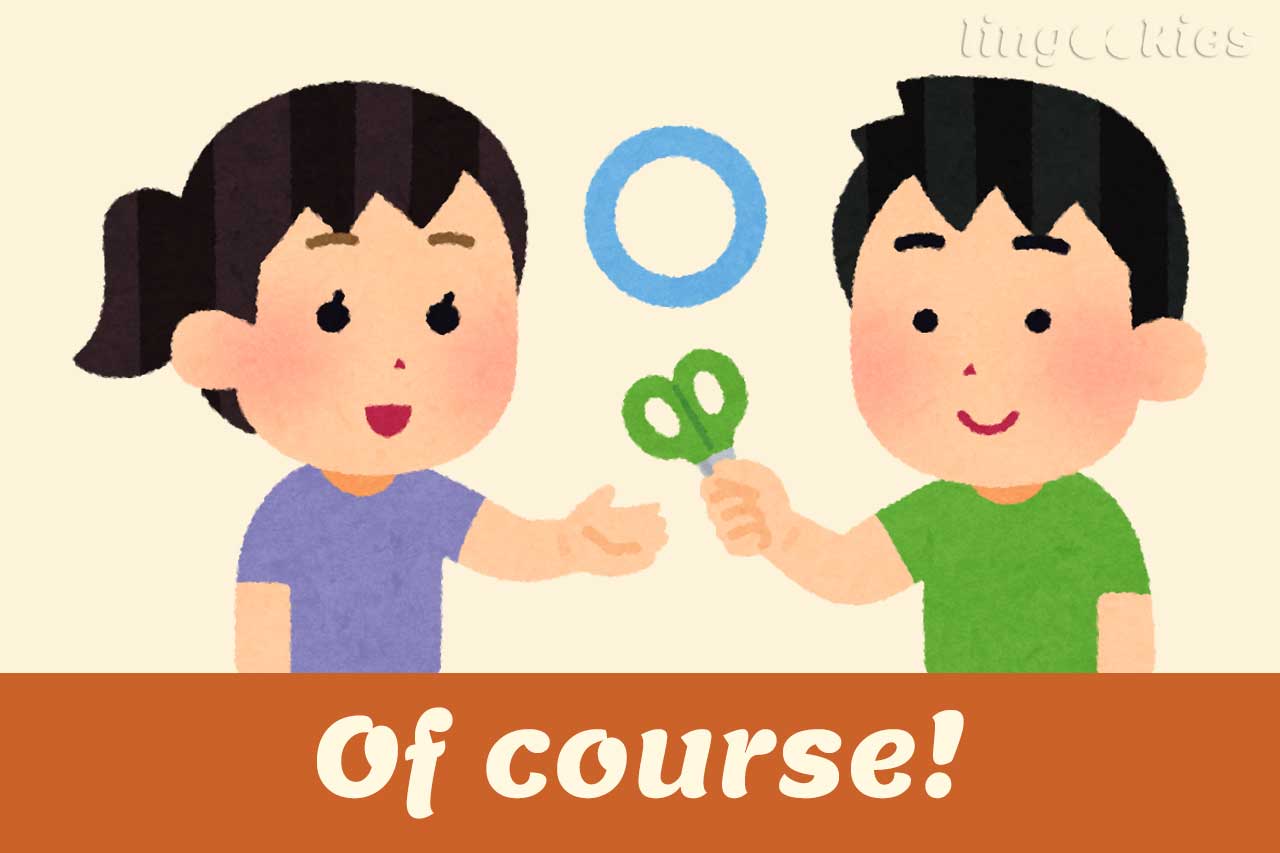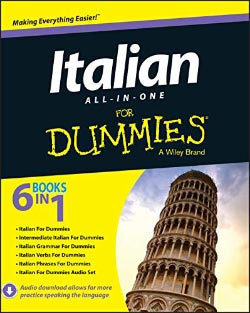How do you say it in Italian?
Certo
Literally, this is an adjective and it means certain.
Certo!
Of course!
Literally: Certain!

An uncommon and rather old-fashioned variant of certo is certamente, which is an adverb that means certainly.
Certamente
Of course
Literally: Certainly
Title: Italian All-in-One For Dummies
Language: English / Italian
Publisher: For Dummies
Pages: 672
Learn to speak Italian like a native? Easy.
Italian All-in-One For Dummies appeals to those readers looking for a comprehensive, all-encompassing guide to mastering the Italian language. It contains content from all For Dummies Italian language instruction titles, including Italian For Dummies, Intermediate Italian For Dummies, Italian Verbs For Dummies, Italian Phrases For Dummies, Italian Grammar For Dummies, and Italian For Dummies Audio Set.
For example, you can say…
Luca, mi presti un secondo la tua penna? – Certo!
Luca, can I borrow your pen for a second? – Of course!
Dario, posso usare il tuo libro? – Sì, certamente.
Dario, can I use your book? – Yes, of course.
Certo che ti aiuterò.
I will help you, of course.

Naturalmente
Naturalmente is another common way to say of course in Italian, but it’s not as common as certo and it’s also a bit more formal. Literally, this is an adverb with the meaning of naturally.
Naturalmente
Of course
Literally: Naturally
For example, you can say…
Lei sa parlare l’inglese, naturalmente.
She can speak English, of course.
Naturalmente accettai l’invito alla festa.
Of course I accepted the invitation to the party.
Scherzo, naturalmente.
I’m joking, of course.

Ovvio
Ovvio is not as formal as naturalmente, but it’s almost as common as certo. It’s an adjective meaning obvious.
Ovvio
Of course
Literally: Naturally
Please note that ovvio is used a bit differently than certo. You can use certo to reply “of course” to someone who asks for something you have, for example…
Mi passi il sale? – Certo.
Can you pass me the salt? – Of course.
But you will use ovvio to translate obviously, so it’s a bit unnatural to use it as an answer to “can you pass me the salt?” because it’s a “confirmation” of a statement.
Luca è uscito senza neanche salutare? – Ovvio.
Luca went out without even saying goodbye? – Of course.

You can also used its adverb form just as in certo/certamente, which is ovviamente, meaning obviously. Just remember that ovviamente, just like ovvio, is used to confirm a statement.
Ovviamente
Of course
Literally: Obviously
Sicuro
Sicuro literally translates to sure and it can be used to translate of course in Italian in the same cases you would use ovvio and ovviamente.
Sicuro
Of course
Literally: Sure
For example, you can say…
Martina sarà andata alla festa? – Sicuro, non c’è nemmeno bisogno di chiederlo.
Will Martina have gone to the party? – Of course, you don’t even have to ask.
A variant for sicuro is sicuramente, which means surely.
Sicuramente
Of course
Literally: Surely
For example, you can say…
Pensi che Marco tornerà prima di pranzo? – Sicuramente, non salta mai un pasto.
Do you think Marco will be back before lunch? – Sure, he never misses a meal.
More free Italian resources
You might want to keep learning Italian online with these free Italian resources:
❤️ If you liked this lesson on how to say of course in Italian, share it with your friends!



